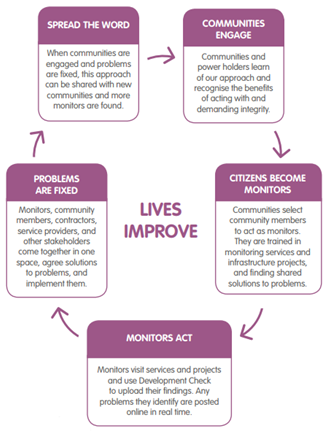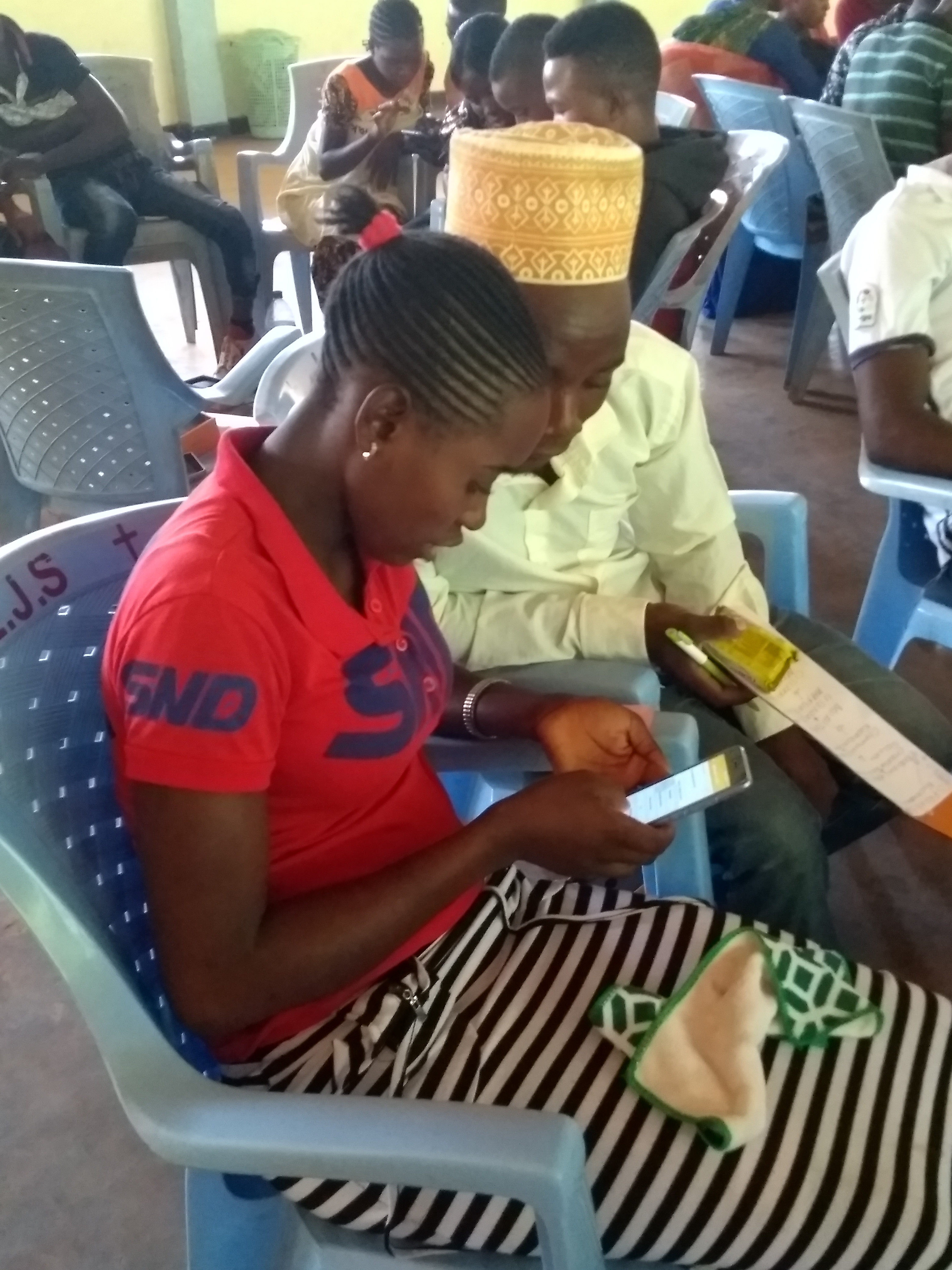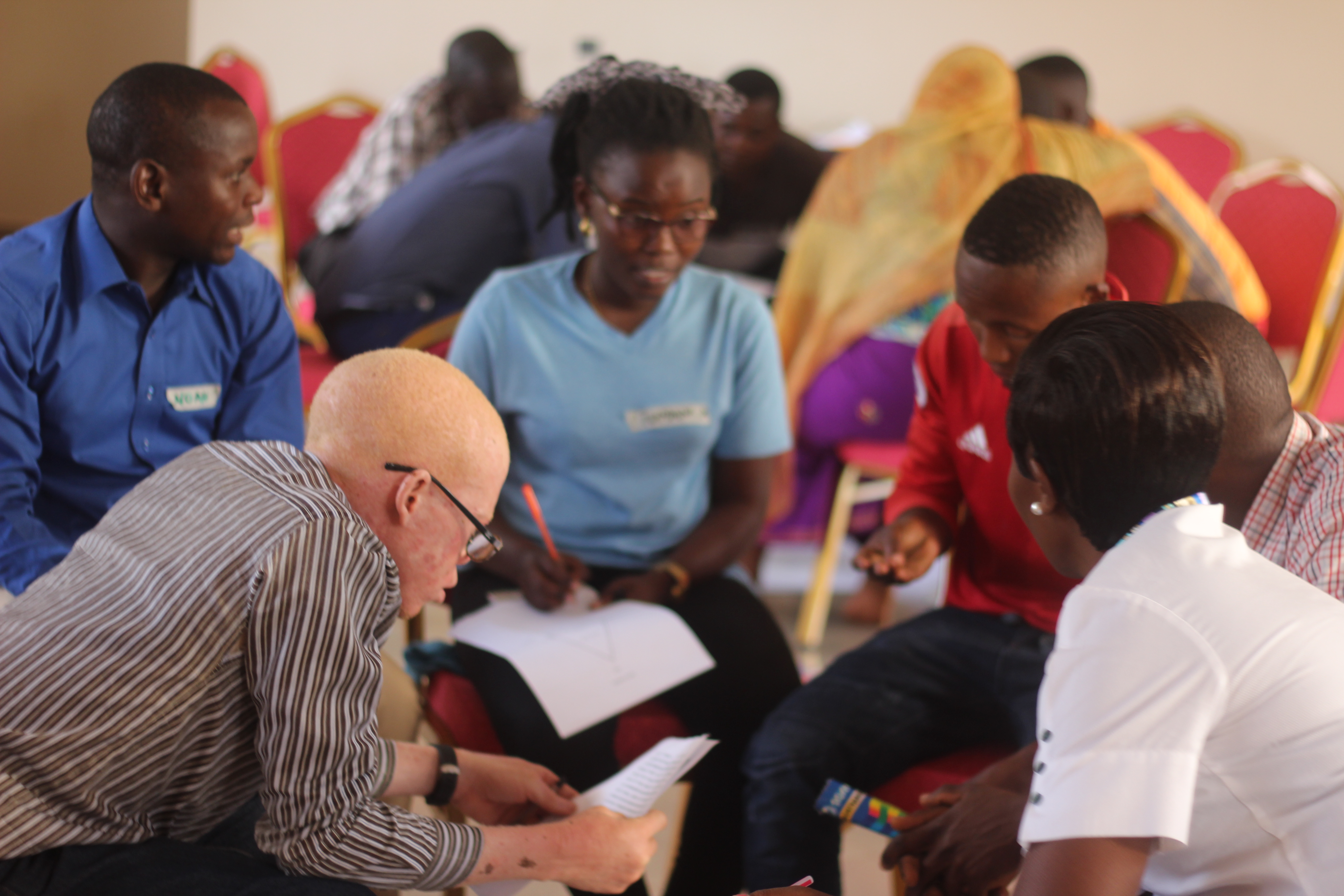Training that works anywhere, for anyone - here's what I learned
What does it mean when we say our training works anywhere, for anyone?
And ultimately, what makes our training approach exciting?
What are we training on?
Integrity Action enables citizens to act as community monitors and demand integrity in the delivery of local projects and services. Our partner organisations use an inclusive and participatory approach to recruit voluntary community monitors, who are trained to check local project/services. They are trained to represent the community, channel the community's feedback, and report this via the DevelopmentCheck app on smartphones. As well as identifying problems, citizen monitors learn how to engage the right stakeholders to ensure the problems get fixed. If you’d like to hear more about this, please get in touch. But it’s not just the training content that’s interesting – it’s the approach.
What is our training approach?
Integrity Action’s training approach is simple. We share our approach and methodology, which we call Community Integrity Building, with CSOs and INGOs. We do this in the most participatory way possible. We train the trainers which means we train both on the approach itself, as well as training people to become certified, capable trainers. We prioritise and emphasise the need for accessible, inclusive trainings, in line with our Gender Equality and Social Inclusion Strategy. Does the upstairs training room have a lift? Is there a gender balance among trainees? And very importantly, are all exercises designed to ensure that everyone can get involved? We also decided to develop materials which didn’t rely on PowerPoint presentations and Internet access. One key feature of our training is that it can be held anywhere in the world, without a training room, electricity or internet, and we are proud of this.
One key feature of our training is that it can be held anywhere in the world, without a training room, electricity or internet, and we are proud of this.
Each of the five modules uses contextualised case studies, role play, games, examples and active exercises. This keeps trainees motivated, engaged and excited to take part. We introduce characters that the trainees can identify with, so the training corresponds with real, lived experiences. The modules follow a cycle with the main aim of improving people’s lives. During the Monitors Act module, participants learn to use our app, DevelopmentCheck and this key part of the training links in with what participants have learnt in previous modules.

So what is the Community Integrity Building cycle?
Having delivered this training for over a year, I have regularly seen participants’ opinions and understanding change drastically over the course of the training. Once, as we started introducing the cycle, some participants felt that it might be a waste of their time, as engaging communities and stakeholder mapping was something they’d been doing for years. However, they persevered and by the end of the training they recognised how each step fitted together and was needed. They felt they had learnt something useful.
We certify our trainers and then watch them flourish as trainers in their own environments.
What can CSOs or INGOs gain from our training?
Over the years, we have witnessed our partners overseas train community monitors, other members of staff and really use the training to empower citizens to demand what they have been promised. Not only have partners become certified trainers, but they have learnt about diverse training styles, how to ensure everyone in the room is comfortable, how to engage with participants and how to be a confident trainer. We certify our trainers and then watch them flourish as trainers in their own environments.
Knock-on effects
An extremely positive unintentional consequence of our training is that we have noticed partners taking their learning further: holding meetings in ground floor meeting rooms, or ensuring they organise community meetings at times of the day when women can attend. The ideas of inclusion and accessibility have gone beyond our training to have a much larger impact on the people we trained, and therefore, those in the surrounding environment.

What have I gained from our training?
On a personal note, this training approach has helped me grow as a trainer. It forces me to be creative and never feels repetitive even when I’ve done it twice in one month, because each time the exercises lead to new conversations, ideas and exciting ways of understanding the world and the international development sector. I find our practical exercises on different types of communication very useful; the way the training teaches monitors to discuss problems with stakeholders and power holders. I realised this is something I can apply to both my professional and personal life to further my ability to communicate well with people around me. I have witnessed partners doing something similar and mentioning how they clarified with a donor, leading to a better understanding of their relationship. This adds an additional layer of importance and value to our training which has an affect beyond the training room.
We have a simple and exciting approach when training monitors to become active citizens in their communities. But is our training unique to other training styles? How do we make this approach more sustainable? How can we make sure those who are trained continue to spread the learning and bring about positive, lasting change in their communities? These are some of the questions we are currently looking into. If you’d like to hear more, please get in touch!


